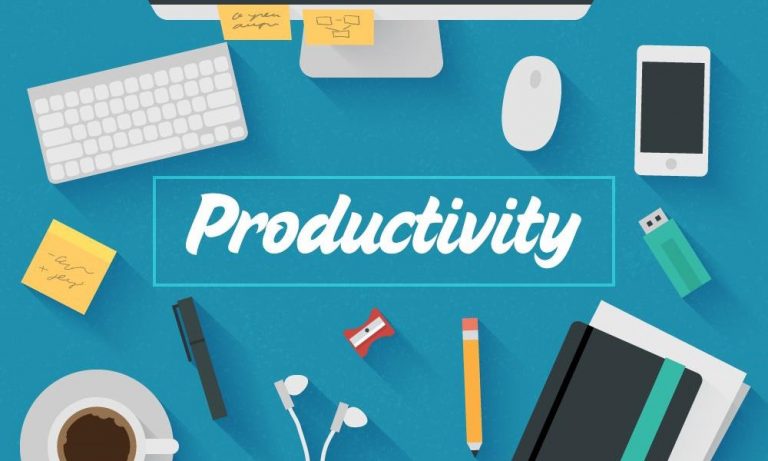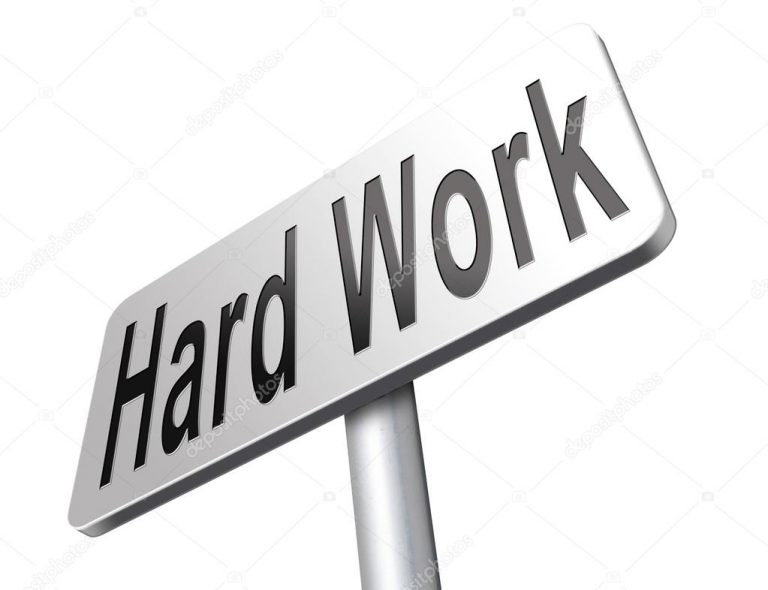Special Report: How Idleness Gave Birth to Poverty
Reading the wonderful work of Max Weber on the Protestant Work Ethic many years ago changed my life. Rigid work ethic pay handsomely. We must reintroduce work ethic in our continent if we really want to move Africa forward.
Whenever people achieve something substantial in our clime, they usually say “Na God,” or “It’s by the grace of God.” The problem with this answer is that scammers will equally say “Na God” when they succeed in scamming people.
We know that God helped you, but you took some steps. Tell us what you did. Tell us the price you paid. Tell us how long it took you to achieve that and what you went through. For every great achievement there is a process. Covering the process with “Na God do am” is one of the reasons why some people are paying prayer contractors to pray then into sudden wealth.
Work Ethic originated from the Protestants that left the Catholic church. When they left, they said; in the absence of Holy Mass and other sacraments, how do we know that God is still with us? They concluded that, since God promised to bless the work of our hands, if their work prospers, it means God is with them.
They developed rigid work schedule that engendered unprecedented prosperity. They began to invent things and propound theories. That was how some parts of Europe was developed.
According to Max Weber, “The Protestant work ethic (or the Puritan work ethic) is a concept in theology, sociology, economics and history which emphasizes that hard work, discipline and frugality are a result of a person’s salvation in the Protestant faith, particularly in Calvinism, in contrast to the focus upon religious attendance etc.”

To order, call 07032681154
The Protestant work ethic is often credited with helping to develop the societies of Northern Europe, such as Scandinavia, Latvia, Estonia, the Netherlands, Germany and Switzerland. German immigrants transformed the United States of America with their work ethic.
It is common for those in a Protestant work culture to skip lunch (traditionally being sustained from a large breakfast) or to eat lunch while doing their job. This is in contrast to other cultures which practice siesta at lunch time, and cultures such as China, Korea and Japan which have a one- or two-hour lunch break.
Some countries such as Spain have experimented with banning siesta in order to try and adopt the Protestant work ethic, with hopes of reducing their financial debt via hard-working and efficient employees.
In Italy, many shops now remain open during siesta, while in China, companies are encouraging employees to give up their traditional break time.
A millionaire farmer in the United States of America is still working in the farm with his children because they value hard work. They also know that if they stop working, people will die of hunger and it will affect the food market globally.
Max Weber wrote that capitalism in Northern Europe evolved when the Protestant (particularly Calvinist) ethic influenced large numbers of people to engage in work in the secular world, developing their own enterprises and engaging in trade and the accumulation of wealth for investment. In other words, the Protestant work ethic was an important force behind the unplanned and uncoordinated emergence of modern capitalism.
To illustrate his theory, Weber quotes the ethical writings of Benjamin Franklin:
Remember, that money is the prolific, generating nature. Money can beget money, and its offspring can beget more, and so on. Five shillings turned is six, turned again is seven and threepence, and so on, till it becomes a hundred pounds. The more there is of it, the more it produces every turning, so that the profits rise quicker and quicker. He that kills a breeding-sow, destroys all her offspring to the thousandth generation. He that murders a crown, destroys all that it might have produced, even scores of pounds.”
To develop work ethic, do the following:
(1). Get Busy.
Idleness is not even good for your health. Don’t sit idle every day and engage in endless discussions that does not add any value to your life and destiny. The easiest way to loose relevance in life is to choose idleness. In fact, idleness will kill your potential, skill and capability.
Idleness leads to decay and disaster. Idleness is the shortest route the city of penury. Idleness is a deliberate invitation to beggarly living. Sitting at home daily without doing any meaningful thing in life is a deliberate invitation to poverty and beggarly living.
Idleness is a doorway to bondage. Idleness produces decadence. Idleness stifles potential. An idle life degenerates the same way an unoccupied house degenerate. Idleness is a killer of enviable destiny.
King Solomon said:
“One day I walked by the field of an old lazybones, and then passed the vineyard of a slob;
They were overgrown with weeds, thick with thistles, all the fences broken down. I took a long look and pondered what I saw; the fields preached me a sermon and I listened: “A nap here, a nap there, a day off here, a day off there, sit back, take it easy—do you know what comes next? Just this: You can look forward to a dirt-poor life, with poverty as your permanent houseguest!” Proverbs 24:30-34 (MSG).
(2). Don’t Look Down on Any Work.
I don’t care what that work is, as long as it’s not illegal and evil, do it. Some people are still jobless today because they feel too big to do what they consider not befitting for either their qualification or standard.
Humble yourself and start from somewhere. The people that run multimillion dollar companies today started from the scratch. Facebook was founded at Harvard University hostel. Apple was founded at the basement. The two founders, Steve Jobs and Steve Wozniak had only $1,350 when they lunched out. Today, Apple has broken every known record in the business world.
I don’t care the kind of certificate you have. I don’t even care whether you graduated top of your class or not, kindly show me what you are doing presently. If you humble yourself, roll your sleeves, and get your hands dirty, you’ll attract your dream job soon and also create lasting wealth.
(3). Have Friends that Value Hard Work.
If you hang around people who love idleness, you will be like them. If you hang around people who talk big, who consistency boast about how wealthy they will become but sit at home and do nothing, it will affect your productivity.
If you walk around your street right now you will see young men and women that are hanging around. Their job is to discuss football, fashion, politics etc. They talk big but feel too big to work. They know the names of all the latest cars in town, but they don’t have any source of income. If you choose befriend them, you’ll ruin your enviable destiny.
Be in the company of people that discuss vision, passion, dream, goals and also work hard to achieve them. If you have friends that usually pay you visit on Monday morning to discuss about the football match that was played over the weekend, please run for your dear life.
(4). Vow to Add Value to Humanity.
Whenever I am teaching work ethic to my students or in training, I usually tell them that there are three major reasons why we work.
We work to develop ourselves.
The very day you were hired by a company you knew virtually nothing. But few months down the line, you mastered your job. That is why we work. We work to develop our capacity. You gain experience by doing something.
We work to add value to humanity.
When you do your job well, you help people to get value for money. A banker helps us to keep our money, an architect helps to make our homes safe through professional designs, a teacher educates us, a medical doctor helps us to stay alive etc. We work to make positive contributions in our generation.
We work to create wealth
If you want to be wealthy, you must be diligent. If you refuse to work nothing will work in your life. If you are praying for favor, please make sure you have a profession. It takes labor to attract favor. Idleness is the shortest route to the city of wretchedness.
Gordon B. Hinckley Said, “Without hard work, nothing grows but weeds.”

To order, call 07032681154
Thomas Jefferson opined, “I’m a great believer in luck, and I find the harder I work the more I have of it.”
David Ogilvy said, “Men die of boredom, psychological conflict and disease. They do not die of hard work.”
Stephen King puts it this way, “Talent is cheaper than table salt. What separates the talented individual from the successful one is a lot of hard work.”
You can sign up for our Productivity and Time Management coaching program right away. Chat with me wherever you read this article.
What did you learn today? Share your thoughts with others at the comment section below.
See you at the top!
Copyright 2021: www.ifeanyieze.com. Reprint, curation, adaptation, or reposting this article without the consent or approval of www.ifeanyieze.com is a copyright theft.











Each time you hit my screen, as I read through it appears like knocking at my door with louder voice. You’ve really made me to always put a check on my day to day activities. Good work the Lord’s General. “Touching Life Transforming mindset “
Thanks. I appreciate.
It’s only God that will bless you for us.It’s absolutely wrong to pray and do nothing.Each day I pray so well in the night, I rise early in the morning because I believe that news doors are now open.Nothing pays better than hard work!
You are absolutely correct. Keep soaring.